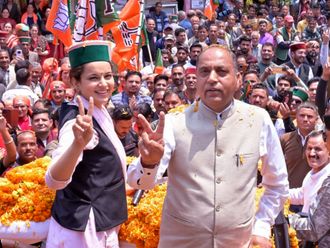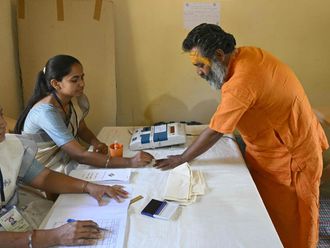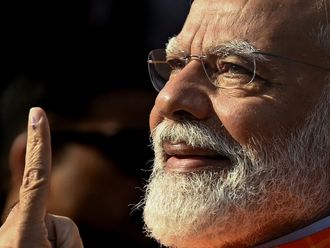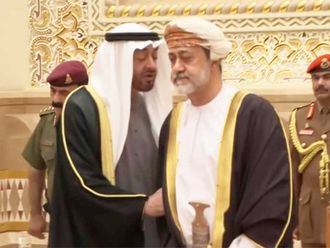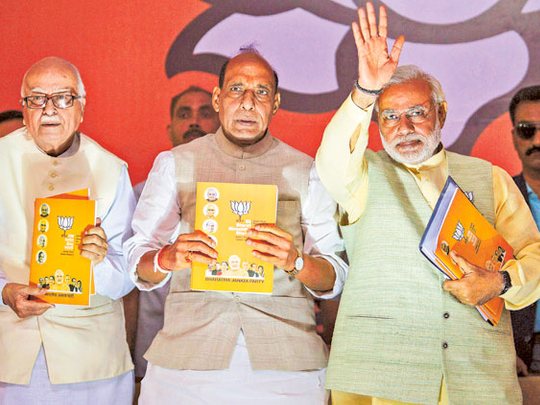
New Delhi: The BJP pledged good governance and development on Monday as it released the party’s delayed manifesto that also included controversial Hindu nationalist policies.
BJP’s Prime Ministerial candidate Narendra Modi and other party leaders unveiled their blueprint for government just hours after polls opened in the world’s biggest election, which they are widely expected to win.
“Good governance and development (are) the two issues on which we are fighting these elections,” Modi, the party’s prime ministerial candidate, said at party headquarters in New Delhi.
The 52-page manifesto also pledges to revise the country’s nuclear doctrine whose main principal is that New Delhi would not be the first to use nuclear weapons in a conflict.
A new government would revise the doctrine “to make it more relevant to challenges of current times” without giving details, the manifesto said. India carried out nuclear tests in 1998, and rival Pakistan quickly followed suit, before New Delhi drew up the policy.
It would also modernise the armed forces, “deal with cross border terrorism with a firm hand” and strengthen the country’s borders.
Focusing on economic reforms, the document welcomed foreign direct investment by almost all companies — except by overseas supermarkets — in a bid to create much-needed jobs and kick-start the flagging economy.
The BJP pledged to simplify the taxation system, review labour laws, and focus on infrastructure such as new cities, high-speed railways, broadband Internet and build low-cost housing for families.
The party, voted out of power in 2004, also stuck to controversial Hindu nationalist ideals which worry religious minorities, particularly Muslims, in the country.
The BJP committed to a long-standing demand for the building of a temple to honour the deity Ram on the site of India’s religious flashpoint.
The manifesto also promised BJP support to end the slaughter of cows, which Hindus consider sacred, and to repeal special autonomous rights granted to Kashmir, the country’s only Muslim-majority state.
The BJP also reiterated its intention to draft a uniform civil code for all Indians, a deeply sensitive and controversial issue which has always divided the population along religious lines.
The Indian constitution allows the country’s billion-plus citizens to be governed by their own religious laws, a privilege enjoyed by minorities such as Muslims and Christians.
Senior BJP leader Murali Manohar Joshi said the Ram temple issue was included in the manifesto because it was “culturally important”, but stressed that “Hindutva” (a Hindu nationalist agenda) was not on the election agenda.
Highlights of promises made:
— End policy paralysis
— Curb corruption
— Improve manufacturing output
— Undertake banking reforms
— Build ‘Brand India’
— Welcome foreign investment in job-creating areas
— No foreign equity in multibrand retail
— Check inflation with single national agriculture market
— Create jobs with labour-intensive manufacturing
— Give boost to agriculture
— Bring back black money
— Create 100 new cities
— Frame a responsible national energy policy



